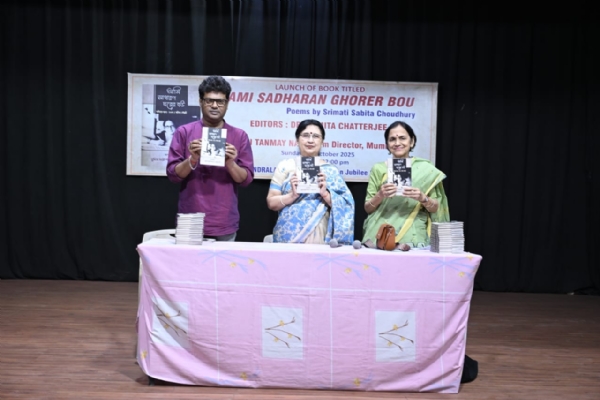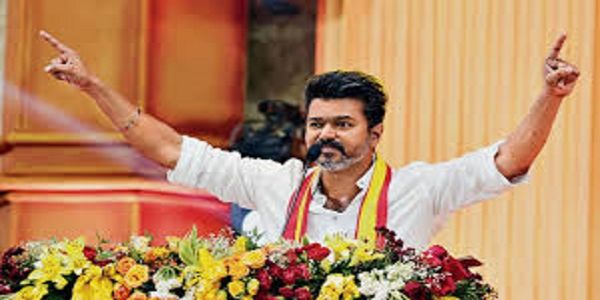
Prayagraj, 26
Oct (HS): Late Sabita Choudhury’s compilation of Bangla poems AMI SADHARAN
GHORER BOU was launched at RABINDRALAY, Jagat Taran Golden Jubilee School on
Sunday. Dr Malabika Pande, Retired Professor of History, BHU and daughter of Sabita
Choudhury lead the intiviative. Sabita Choudhury in her lifetime did not take
interest in compiling or publishing her poems, for to her they were SVANTAH
SUKHAY, i. e. for personal enjoyment! This is where her daughter Dr Malabika
Pande stepped in after her death and decided to get them printed and published.
Sabita Choudhury
(25.12.1933 – 10.06.2020) looked upon herself as an ordinary individual, who
engages in the routine pursuits of womenfolk in traditional settings. Her
childhood was spent in the remote lands of undivided North-western India, where
her father was posted as an Engineer of the Military Engineering Service. This
gave her a life-long interest in observing the wonders and mysteries of nature,
and poetic insights into day-to-day experiences.
She started
writing poems and short literary pieces from the age of fourteen, and expressed
her creative inspirations in school notebooks and loose sheets of paper. She
was married to Suchit Chandra Choudhury, a Railway Engineer, at the age of 17,
and was drawn into new sets of responsibilities as daughter-in-law,
sister-in-law, mother and neighbour. She was fortunate that her husband and
in-laws were fully supportive of her literary and cultural interests. As her
husband was an avid traveller she had many opportunities to visit and stay in
several parts of the country. This sharpened her sense of appreciation of the
world around her, and helped develop poetic insights. The manifest intellectual
and cultural ambience of the household helped refine her lyrical sensibilities.
She often presented her poems at meetings of local social clubs and Bangla
literary societies, such as Purnima Sammelani, to much appreciation, but did
not take interest in compiling or publishing them, for to her they were SVANTAH
SUKHAY, i. e. for personal enjoyment!
However, when
the ancestral home of the family was being vacated, the compilation of Sabita’s
poems on notebooks and loose sheets was ‘discovered’, and it was then decided
by her family to get them examined by Bangla experts for further action. It was
in this context that the manuscript (in several segments) was first read by her
youngest sister Sheela, and then critically by Professor Sumita Chatterjee of
the Bangla Department of Banaras Hindu University and the eminent film-maker
and poet Tanmay Nag, who not only expressed their appreciation for the poems,
but also took the initiative for getting them printed and published. The family
is deeply indebted to them for their sterling role in ‘rescuing’ the poems from
obscurity.
Hindusthan Samachar / Abhishek Awasthi






